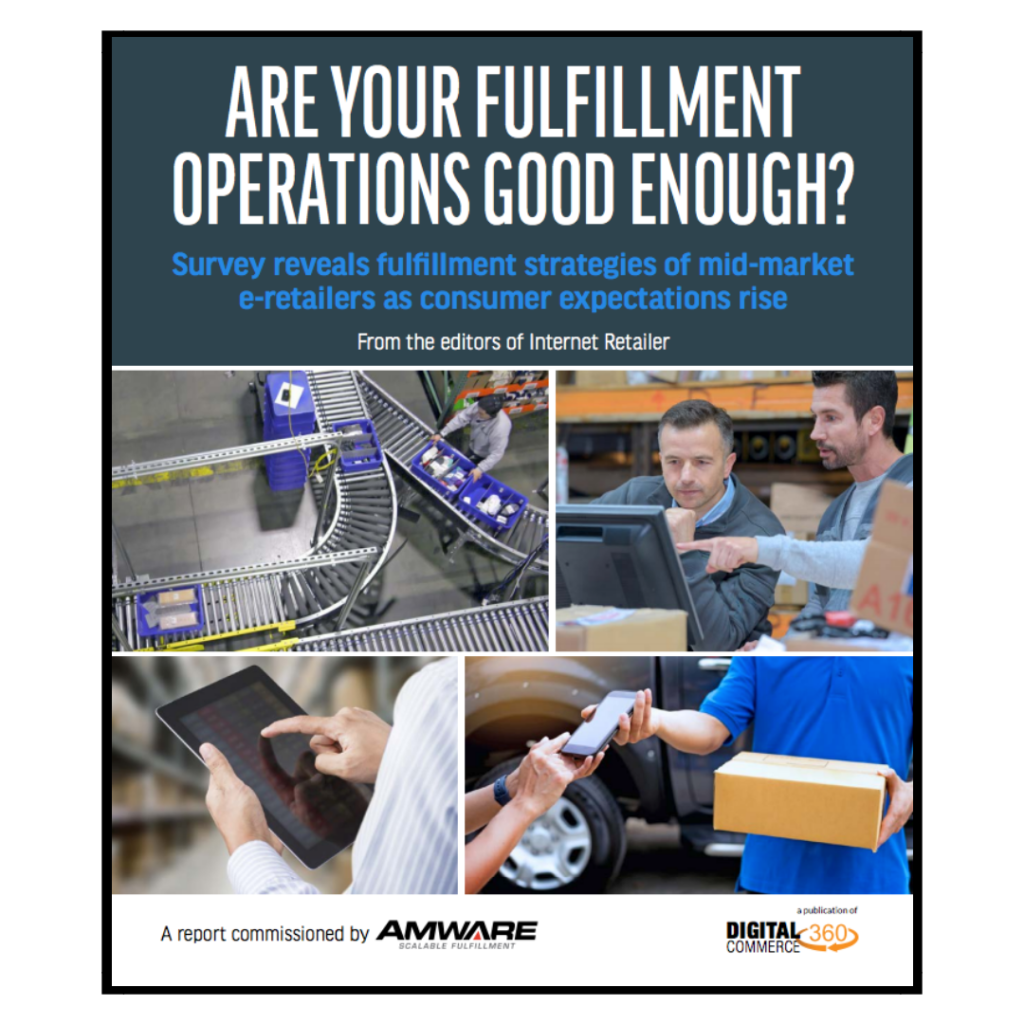Contributed by Gold SUBTA Resource Partner, Amware Fulfillment
Internet Retailer just published a research report whose title posed an important question for all B2C sellers, including subscription box companies: Are Your Fulfillment Operations Good Enough?
Interestingly, many of the 100 mid-sized e-retailers who responded to the survey don’t think so. All had B2C order volumes of at least 3,000 per month.
Let’s dig into some of the survey’s findings.
They rate the “importance of fulfillment” as a well-deserved 8.77 out of 10, while rating the quality of their own fulfillment operations a comparatively “meh” score of 7.31.
Why is that? Well, 44% of respondents do not believe or are unsure if their current fulfillment warehouse network is sufficient to meet customers’ desire for faster delivery. Of these, more than 50% fulfill orders for national distribution through a single warehouse.
According to the authors of the survey report, a single warehouse strategy makes it “impossible to do two-day, nationwide delivery using efficient ground transportation,” adding that, “many companies don’t have enough warehouse coverage across the U.S. to fulfill orders quickly and efficiently.”
This begs the question: How many warehouses does your subscription box business really need to stay on pace with your customers’ delivery expectations – and to ensure your fulfillment performance is on par with the changing landscape? The trend is certainly toward expanding B2C warehouse networks to put products closer to customers in order to speed delivery times and reduce parcel costs by eliminating high-zone moves.
Which fulfillment challenges are most important?
The top three challenges named by survey respondents were:
- order accuracy
- meeting customer demands for rapid fulfillment
- controlling shipping costs
In line with this data, order accuracy stood out as the most critical fulfillment metric that these businesses are actively measuring to determine success. Metrics that evaluate costs and address delivery timing are also a focus for most B2C sellers.
To outsource or not to outsource
About half, 54%, of the B2C companies we surveyed handle fulfillment themselves, while the other half outsource or use a combined insource/outsource strategy.
However, the number of B2C companies that outsource fulfillment is growing. Outsourcing allows sellers to focus on building market share, while the all-important back-end fulfillment operation is in the hands of experts.
Fulfillment becoming battleground for competitive advantage
Consumers are demanding more and more from online sellers and direct sellers. They want detailed information on product options, a quick, easy purchase process and fast, free delivery. It’s a tall order and B2C companies are coming around to the fact that differentiation based on product or price is difficult, if not impossible. Today, success is more about delivering a great customer experience, from start to finish. That’s why mid-market B2C companies are placing increasing importance on back-end fulfillment operations that get the right order delivered on time and in perfect condition.
Read the full survey report at www.amwarelogistics.com/IR-survey.


